|
If you had all of the money in the world what kind of world would you create? What kind of fuel and energy would power our lives? Would you opt for organic food, if it were affordable and available? How would people move around in your utopia? The current pandemic has forced each one of us to evaluate our lives. Dramatic shifts are happening. Many are being forced on us. The skies have never been cleaner in my lifetime. Traffic has never been so light and calm. What if these forced changes become permanent, either by choice or by nature’s command? And if we are no longer addicted to gasoline, and can work from home, what other sustainable solutions lie at hand? What investments should we collectively make to invest in a cleaner and greener tomorrow? What personal carbon neutral goals should we embrace for ourselves, as individuals, as corporations and collectively as taxpayers? What we have discovered since the Enlightenment, with rapid innovations that have taken us to the Moon and beyond, with computers that can operate on our wrist, is that: if we dream it and commit to it, we can achieve it. So, what is our new collective dream? Below are ten considerations as we all ponder co-creating greater peace, prosperity and planetary sustainability. The missing link in the past was that too many of us were marching for the planet, but not living a personal carbon neutral life. We had many justifications for this, usually starting with providing for ourselves and our families. We were never taught how to put our money where our heart is and profit from that – what the inherent personal and global value in that is. In fact, the broker/salesmen of the multi trillion-dollar financial services industry typically tell us the opposite – to worry about making profits, and then use our gains for good. Now that we have time to think about that proposition, the spuriousness becomes apparent. Should we profit from the products we picket? Will Altria gains buy a few more years of life for a loved one with cancer? If you are someone who buys insurance, has a 401K or a money manager, or even if you are just a taxpayer, then now is the time to learn and understand exactly how our taxes, investments, choices and habits fund the very companies and products that we oppose in our world. We can switch out blind faith, Buy & Hope and riding the Wall Street rollercoaster with taking ownership of the companies, products and services that create a healthy life and world. We’ll have to make sure that our tax dollars are scrubbed clean, too. Change happens far more frequently through social movements than it does in the halls of Congress. If consumers and enlightened investors unite to put our money where our heart is, the leaders will be forced to follow. It all begins with wisdom. Nine Considerations for Co-Creating a Beautiful Life & Planet Consumer Dollars Investing Dollars Clean Energy Micro Mobility, Mass Transit and Ride Share Use Less Community #NoExcuseForSingleUse Plant More Trees The Earth Gratitude Project And here are more details on each point. Ten Considerations for Co-Creating a Beautiful Life & Planet Consumer Dollars We often have hubris in this department, thinking that we are doing the best that we can. However, that is based upon a large base of assumptions. In January, we might have assumed that we have to drive a long daily commute, and spend a large amount of our budget on gasoline each month. Today, we might be Working from Home, commuting barefoot from our kitchen to our home office and amazed at the savings. What if we take the consumption examination broader to include everything in our lives – including the money that we spend on electricity, 62% of which flows through to fossil fuel companies, on average. (See the source chart below.) Being a green consumer requires getting informed and taking a serious look at our daily habits to see what can be turned off, reimagined, repurposed and switched out to dramatically reduce or eliminate the need for oil, gas and the fossil fuels that are polluting our air, our water and our food, and contributing to climate change. The upside is that with smarter big-ticket choices, we can save thousands of dollars annually. Individuals who use grid electricity, typically spend thousands annually and hundreds monthly. Homeowners with rooftop solar often only spend $50 or less each month. That’s a savings of thousands annually. You can pay back the solar within a few years, and then enjoy what amounts to a 15% or more Return on Investment annually, when you consider the energy savings each year. There is even a federal tax credit of 26% in 2020 and 22% in 2021. There are likely to be state and local incentives as well. Proper home insulation can dramatically reduce the need for heat and air, requiring less power and fewer solar panels. Clean energy is local. What is right for Michigan will be different than what is right for Arizona. Poundbury, England, installed a gas-to-grid anaerobic digester. There are time-proven solutions for all climates that also offer substantial budget savings to boot. Investing Dollars Are you profiting from the companies you are picketing? Do you know what you own in your retirement plans, annuities, savings and insurance plans? Are you aware of where your tax dollars flow? Of the 916 bonds that were purchased by the Federal Reserve this year (to prevent a financial meltdown when the markets became illiquid), the majority of the funds have gone to the products of last century, rather than clean energy and a more sustainable tomorrow. Knowing what you own, being properly diversified and leaning into the products, goods and services of tomorrow could save your assets during the COVID-19 Recession and beyond. Most people lost more than half in the last two recessions, and 35% in March of 2020, whereas our easy-as-a-pie-chart nest egg strategies earned gains in the last two recessions and have outperformed the bull markets in between. Investors who have followed our work phoned our offices filled with gratitude in February and March of this year, while others were desperate to learn our system to protect their wealth. The solutions are simple, which is why we call them The ABCs of Money that we all should have received in high school. Buy & Hope is a last century strategy that hasn’t worked in the 21st Century. Annual rebalancing is a buy low, sell high plan on auto-pilot. Learn more in my book The ABCs of Money, in our retreats (visit NataliePace.com to learn more about the Oct. 3-5, 2020 Investor Educational Retreat) and with our unbiased 2nd opinion (call 310-430-2397 for pricing, information and testimonials). Clean Energy As you can see in the chart above, our country is falling behind on clean energy generation. Currently, only 17.5% of the grid is powered by renewable energy. That’s up only 7% in a decade. In some states, the renewable energy percentage is in the low single digits. If you’d like to know how your state is doing, visit SpotforCleanEnergy.org. Floridians are always surprised to learn that less than 3% of their power is renewable. Click to read about Santa Monica, California, which switched over to 100% renewable energy in February of 2019, and has a water independence project in motion. If your city or state is mostly powering with nuclear and fossil fuels, then you should be thinking of that every time you choose the stairs over the elevator, sit in a sunlit room or opt for other energy-smart choices rather than the habitual on/off switch. Every time you use grid power, you are firing up a coal plant or purchasing from a fracking natural gas facility. If rooftop solar isn’t right for your climate, then an anaerobic digester, passive solar and Passive Home technology might be the right solution for your community. Micro Mobility, Mass Transit and Ride Share Three years ago, you couldn’t hop on an e-scooter sharing app. 20 years ago, conspicuous bike lanes were few and far between. Thanks to renegade startups, courageous City Council members and Millennials/Gen Z, micro mobility has forced its way into cities. A single-occupancy car commute is a waste of time, money and resources. Yet, many of us have found ourselves trapped in this lifestyle, even when gridlock added a great deal of stress and time to our daily lives. Fortunately, there are solutions in many cities now – solutions that can also pay you back. Micro mobility has bridged the last mile, so that people can (and do) take public transportation. The cost of a car averages about $7,500/annually, when you include the car payment, car insurance, fuel and maintenance. (Electric Vehicles have far lower costs of fuel and maintenance.) If you opt for public transportation, biking, e-scooters and ride share when needed, your annual cost savings can be in the thousands. The National League of Cities has developed a Micro Mobility Report that helps local leadership to navigate through the transition with pilot programs, resources for funding and best practices for managing the special interest groups. Use Less This is the single-most effective way to be kinder and gentler to the planet. Remember to extend the idea to power and energy, in addition to using canvas bags. Take the stairs. Opt for sunlight and fresh air. Walk or bike to pick up that carton of milk. Say no to plastic and straws. Bring your own bulk and to-go containers to stores and restaurants. We know most of the things to do. However, getting it right means planning ahead, which is where many of us with the best intentions fall short. Community When people work together things move quickly. There are people in your community who want organic food, clean energy, visible bike lanes, trees, clean air, healthy oceans, local water conservation and diverse wildlife. There are already great organizations that have resources for pretty much anything you desire to do. Are you interested in planting learning gardens in your kids’ school, or creating bike lanes to keep them safe? Are you motivated to lead a game-changing water conservation or renewable energy project in your city? Even a few hours a week working with others can bring about much-needed progress. #NoExcuseForSingleUse There is no excuse for single use anything. Use this hash tag to applaud any corporation getting it right, and for calling out corporations that need to fix their throw-away business model. Plant More Trees Soil regeneration and planting trees is a great way to sequester carbon for the good of the planet, people and all living things. The Dalai Lama has been teaching about this for decades. HRH The Prince of Wales has put his money and position behind organic farming, sustainable communities and all things green since the 1970s. In the poorest parts of the city, where there is more concrete and fewer trees, the air temperature can be much hotter. Having more trees benefits the entire city, so becoming more civic minded, and reaching across socio-economic borders, benefits everyone. At the same time, be sure that the local landscape is appropriate for your community. If you live in an area that is affected by drought, help schools and businesses remove the carpet of grass and install drought-resistant plants. Sometimes there are local incentives to do this. It’s important to save the water. There are many financial benefits to doing the right thing. Watch the new documentary, Kiss the Ground, on Netflix on September 22, 2020 to learn more about carbon sequestration through sustainable farm practices, with an emphasis on healthy soil, plants and livestock. Read the two free Earth Gratitude ebooks to learn more sustainable strategies offered by the world's leading experts. Click to learn more about The Prince of Wales twin eco-cities. Discover Poundbury, Dorset on the Google Arts and Culture pages. The Earth Gratitude Project All great holidays have rituals. The Earth Gratitude Project was launched to honor and give thanks for Mother Earth with a fun net zero celebration on April 22nd each year. If we try something new on each Earth Day, it can become the way life is. The free Earth Gratitude ebooks offer inspiring projects to consider when planning your Earth Gratitude celebration with your friends and family. Why gratitude? When we flood our minds with the endorphins of gratitude, we receive the solutions necessary to preserve this beautiful blue ball that we call home. Watch a 4-minute film at EarthGratitude.org of a young family who made a bold and inspiring choice to opt out of the daily commute and food covered in plastic, and into their dream-come-true off-grid home in the wilderness. I’m an advocate of money while you sleep (investing) and free markets. However, we’ve seen Depression-like recessions, a stalled-out commitment to sustainability and cronyism economics take the stage in the 21st Century. Again, most people have lost half or more of their wealth in each of the last two recessions. The financial indicators of the current recession are worse than the Great Depression. So, why not learn how to put your money where your heart is and profit, while also protecting your wealth? We can stop allowing the status quo to co-opt our money to fund fossil fuels, habitat destruction and other enterprises that we strongly oppose. We can instead use our collective power to regenerate the soil, replant the forests, remove the plastic from the oceans and breathe cleaner, healthier air as a result. The pandemic’s interruption of our lives is an opportunity to rethink and re-create everything. Every cent we own and every moment we spend is always an investment. Let’s invest in a beautiful world for our children and grandchildren to enjoy. Life is in upheaval. Everything is on the table. Many of us are have been forced to move swiftly to make the necessary changes to survive and thrive. While we are rebuilding everything, adding these 10 considerations into the mix might actually lead to a renaissance beyond our wildest dreams. This is a moment in time where we are all challenged to co-create an existence worthy of being remembered for ages to come. Let’s rise to the occasion. We must become informed and aware, and act with our eye on the destination, rather than the short-term thinking of how high stocks are today and how wealthy we feel, or how devastated we were yesterday (and perhaps tomorrow) when we lost more than 35% before we could even blink. True wealth is not a rollercoaster. Living a rich life is priceless. Having a planet that nourishes and sustains us is a divine blessing, and is essential to our survival. So, let’s put our money where our heart is and profit, in every sense of the word. If you're interested in protecting and diversifying your retirement and investing portfolio, and learning how to put your money where your heart is (instead of profiting from polluters) join me at our Oct. 3-5, 2020 Investor Educational Retreat. Click on the banner ad below for additional information on the Oct. 3-5, 2020 Online Financial Empowerment Retreat. Families receive a discount for attending together. Call 310-430-2397 or email [email protected] for to get rates. "Many people, including educated men and women, often get into trouble when they neglect to follow simple and fundamental rules of the type provided [by Natalie]. This is why I recommend them with enthusiasm." Professor Gary S. Becker. Dr. Becker won the 1992 Nobel Prize in economics for his theories on human "College students need this information before they get their first credit card. Young adults need it before they buy their first home. Empty nesters can use the information to downsize to a sustainable lifestyle, before they get into trouble." Joe Moglia, Chairman, TD AMERITRADE. Other Blogs of Interest Crystal Ball for the Remainder of 2020 (Including the Election). Microcap Gaming Company Doubles 2Q 2020 Revenue. Apple & Tesla Stock Splits. Schwab's Chief Fixed Income Strategist on What's Safe. China's Tesla (Nio). 2Q Sales Soar. Why Are You Still Renting? (Errr. There is More Than This to Consider!) MedMen's Turnaround Plan Attracts A-List Board Members. Wealth Myths That Keep You Poor. Prosperity Truths That Make You Rich. Protecting Your Wealth and Home in a Recession. Technology and Silver are Golden. The Economy Contracts 32.9% in the 2nd Quarter of 2020. Real Estate: Feeling Equity Rich? Make Sure That Feeling Isn't Fleeting. Airline Revenue Plunges 86%. 10 Questions for College Success Bank Earnings Season. Crimes. Cronyism. Speculation. Real Estate Solutions for a Post-Pandemic World. Copper and Chile Update. Gold Soars. Some Gold Funds Tank. Will the Facebook Ad Boycott De-FANG Stocks? Why Did My Cannabis Stock Go Down? Which Countries Are Hot in a Global Pandemic? Is Your Financial Advisor Good at Navigating Stormy Seas? $10 Avocados, Lies, Damn Lies, Statistics & Wall Street Secrets. It's Never a Crash. Work From Home and Intergenerational Housing. Biotech Races for a Coronavirus Cure. Are You Worried About Money? May is a Good Time for Rebalancing. Is FDIC-Insured Cash at Risk of a Bank Bail-in Plan? Why Did my Bonds Lose Money? Cannabis Update. Recession Proof Your Life. Free Videocon Monday, May 10, 2020. The Recession will be Announced on July 30, 2020. Apple Reports Terrible Earnings. We Are in a Recession. Unemployment, Rising Stocks. What's Going On? 8 Money Myths, Money Pits, Scams and Conspiracy Theories. 21st Century Solutions for Protecting Your Home, Nest Egg & Job. Wall Street Insiders are Selling Like There is No Tomorrow. Why Are My Bonds Losing Money? Tomorrow is Going to be Another Tough Day. Price Matters. Stock Prices are Still Too High. Should You Ride Things Out? 7 Recession Indicators Corona Virus Update. The Bank Bail-in Plan on Your Dime. NASDAQ is Up 6X. CoronaVirus: Which Companies and Countries Will be Most Impacted. Is Tesla Worth GM and Ford Combined. Artificial Intelligence is on Fire. Is it Time to Buy S'More? Take the Retirement Challenge. 2020 Investor IQ Test. Answers to the 2020 Investor IQ Test. The Cannabis Capital Crunch and Stock Meltdown. Does Your Commute Pollute More Than Planes? Are Health Care Costs Killing Your Budget? 2020 Crystal Ball. The Benefits of Living Green. Featuring H.R.H. The Prince of Wales' Twin Eco Communities. What Love, Time and Charity Have to do with our Commonwealth. Interview with MacArthur Genius Award Winner Kevin Murphy. Unicorns Yesterday. Fairy Tales Today. IPO Losses Top $100 Billion. Price Matters. Will There be a Santa Rally? It's Up to Apple. Harness Your Emotions for Successful Investing. What the Ford Downgrade Means for Main Street. The Dow Dropped Over 1000 Points Do We Talk Ourselves into Recessions? Interview with Nobel Prize Winning Economist Robert J. Shiller. Ford is Downgraded to Junk. Gold Mining ETFs Have Doubled. The Gold Bull Market Has Begun. The We Work IPO. The Highs and Hangovers of Investing in Cannabis. Recession Proof Your Life. What's Your Exit Strategy? It's Time To Do Your Annual Rebalancing. Are You Suffering From Buy High, Sell Low Mentality? Financial Engineering is Not Real Growth. The Zoom IPO. Uber vs. Lyft. Which IPO Will Drive Returns? Boeing Cuts 737 Production by 20%. The Lyft IPO Hits Wall Street. Should you tak Cannabis Doubles. Did you miss the party? 12 Investing Mistakes The High Cost of Free Advice. 2018 Was the Worst December Since the Great Depression. Russia Dumps Treasuries and Buys Gold OPEC and Russia Cut Oil Production. Important Disclaimers Please note: Natalie Pace does not act or operate like a broker. She reports on financial news, and is one of the most trusted sources of financial literacy, education and forensic analysis in the world. Natalie Pace educates and informs individual investors to give investors a competitive edge in their personal decision-making. Any publicly traded companies or funds mentioned by Natalie Pace are not intended to be buy or sell recommendations. ALWAYS do your research and consult an experienced, reputable financial professional before buying or selling any security, and consider your long-term goals and strategies. Investors should NOT be all in on any asset class or individual stocks. Your retirement plan should reflect a diversified strategy, which has been designed with the assistance of a financial professional who is familiar with your goals, risk tolerance, tax needs and more. The "trading" portion of your portfolio should be a very small part of your investment strategy, and the amount of money you invest into individual companies should never be greater than your experience, wisdom, knowledge and patience. Information has been obtained from sources believed to be reliable. However, NataliePace.com does not warrant its completeness or accuracy. Opinions constitute our judgment as of the date of this publication and are subject to change without notice. This material is not intended as an offer or solicitation for the purchase or sale of any financial instrument. Securities, financial instruments or strategies mentioned herein may not be suitable for all investors. 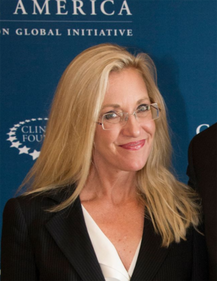 About Natalie Pace Natalie Wynne Pace is an Advocate for Sustainability, Financial Literacy & Women's Empowerment. She has been ranked as a No. 1 stock picker, above over 835 A-list pundits, by an independent tracking agency (TipsTraders). The ABCs of Money remained at or near the #1 Investing Basics e-book on Amazon for over 3 years (in its vertical), with over 120,000 downloads and a mean 5-star ranking. The 3rd edition of The ABCs of Money was released in 2020. The 4th edition, updated to include the COVID-19 Recession, will be released soon. Natalie Pace's easy as a pie chart nest egg strategies earned gains in the last two recessions and have outperformed the bull markets in between. That is why her Investor Educational Retreats, books and private coaching are enthusiastically recommended by Nobel Prize winning economist Gary S. Becker, TD AMERITRADE chairman Joe Moglia, Kay Koplovitz and many Main Street investors who have transformed their lives using her Thrive Budget and investing strategies. Click to view a video testimonial from Nilo Bolden. Comments are closed.
|
AuthorNatalie Pace is the co-creator of the Earth Gratitude Project and the author of The Power of 8 Billion: It's Up to Us, The ABCs of Money, The ABCs of Money for College, The Gratitude Game and Put Your Money Where Your Heart Is. She is a repeat guest & speaker on national news shows and stages. She has been ranked the No. 1 stock picker, above over 830 A-list pundits, by an independent tracking agency, and has been saving homes and nest eggs since 1999. Archives
July 2024
Categories |







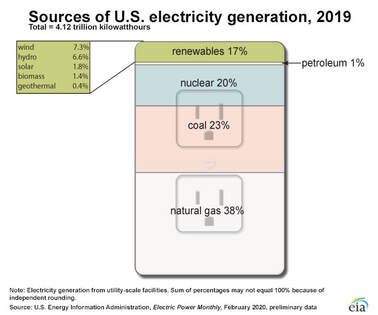
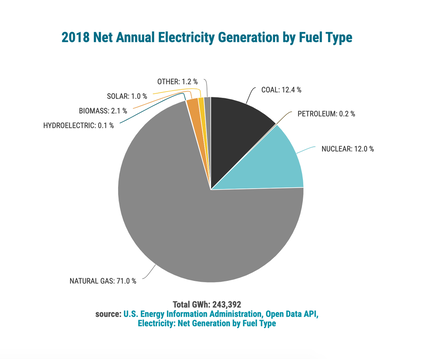

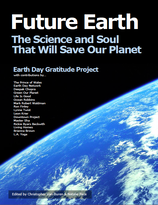
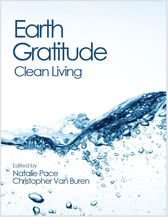

 RSS Feed
RSS Feed